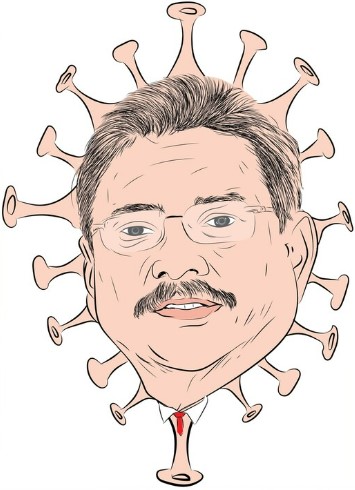Virendra Pandit
New Delhi: A week after Ranil Wickremesinghe took oath as Sri Lanka’s President until November 2024, his unpopular predecessor Gotabaya Rajapaksa, who secretly fled the country on July 13 amid violent protests in the financially crippled island nation, is allegedly trying to return from Singapore where he fears he might be indicted for crimes against humanity.
While President Wickremesinghe is making efforts to negotiate a bailout package from the International Monetary Fund (IMF), an international human rights group has urged Singapore to indict the fugitive ex-president for his crimes against humanity during his country’s decades-long civil war, the media reported.
The reason for Gotabaya’s return is that as the former President stripped of immunity, they could indict him in Singapore if he stayed there.
Anti-Rajapaksa protesters had declared Gotabaya and his Rajapaksa clan undesirable people and threatened to hit the roads again if they return.
But Bandula Gunawardena, Media Minister in the Wickremesinghe government, refuted on Monday that Gotabaya was hiding in Singapore and said he would return.
“I don’t agree that the former President is hiding in Singapore. He had followed the official procedure and gone to Singapore after obtaining a legitimate visa,” the media quoted him as saying.
“I knew that he would return, and the authorities in our country would take necessary precautions to prevent any harm to the former President.”
That Gotabaya is attempting to return was hinted at by a close Rajapaksa aide as well.
G.L. Peiris, former Defence Minister and chairperson of the Sri Lanka Podujana Peramuna (SLPP), the Rajapaksa party formed to win the 2019 Presidential election, also said that Gotabaya will return to the country and would be entitled to all the perks and privileges that are due for any former head of state.
In Sri Lanka, they entitle former Presidents and their families to a residence in Colombo, vehicles, and security, including military and police, besides other perks and privileges.
According to media reports, Gotabaya’s escape had been brokered by the Maldivian Parliament Speaker and former President Mohamed Nasheed.
Amid these political machinations, the unprecedented economic crisis, the worst since Sri Lanka gained independence in 1948, continued with severe shortages of food, fuel, medicines, and other essentials.
When it started, agitated people surrounded the former President’s private residence on March 31 and occupied the entrance to the President’s office.
And on July 9, despite heavy security in Colombo, anti-government protesters took over the President’s official residence, his office, and later the Prime Minister’s residence, prompting Gotabaya to flee hiding. Then he fled to the Maldives and finally to Singapore. He resigned on July 14.
Meanwhile, the International Truth and Justice Project (ITJP), a South Africa-based rights group, has filed a complaint with the Attorney-General of Singapore demanding the arrest of Gotabaya Rajapaksa for war crimes allegedly committed during the final days of the over two-decades-long Civil War against the Sri Lankan Tamils.
Gotabaya, who helmed Sri Lanka’s defense ministry while his brother Mahinda Rajapaksa was President, was in charge when the country’s brutal suppression of Tamil separatism ended in 2009.
The rights groups accused the Sri Lankan government forces of killing over 40,000 Tamil civilians in a no-holds-barred offensive during the war’s final weeks.
The ITJP said it had urged Singapore to exercise its universal jurisdiction to arrest the former president for grave breaches of international humanitarian law.
“These include murder, execution, torture and inhuman treatment, rape and other forms of sexual violence, deprivation of liberty, severe bodily and mental harm, and starvation,” according to the 63-page complaint.
Singapore’s Attorney General’s Chambers (AGC) confirmed on Monday that it had received a complaint from the South African group but gave no further details.
The once powerful Rajapaksa clan has long claimed that they killed no civilians in crushing a Tamil Tigers separatist movement and resisted repeated international calls for an independent investigation.
Soon after coming to power in November 2019, Gotabaya Rajapaksa, a retired army lieutenant-colonel, granted a pardon and freed an army sergeant on death row for the murder of eight Tamils, including three children.
Last year, he granted an amnesty to his close associate Duminda Silva, another convicted murderer on death row for killing a former lawmaker and four others.
Despite local and international condemnation, Sri Lanka does not carry out the death penalty, and the convicts were serving life sentences when the ex-president freed them.
Gotabaya has also been accused of leading death squads, but he denied abducting dissidents and journalists and killing them when he served as defense secretary between 2005 and 2015.
Two cases against him in a California court were frozen in 2019 after he became president and gained sovereign immunity.
Eleven people who survived torture filed one, while the other was by the daughter of a prominent anti-establishment editor allegedly killed at Rajapaksa’s behest.

